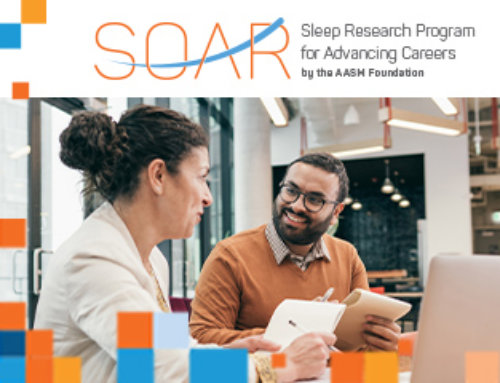The Strategic Research Grant program supports investigator-initiated, high-impact research projects aimed at addressing gaps in knowledge that impact the ability to provide optimal, patient-centered, cost-effective diagnosis and care for patients with sleep disorders. In 2022, there were four unique requests for applications (RFAs): Treatment of Central Disorders of Hypersomnolence, AASM Strategic Plan Goals, Continuous Positive Airway Pressure Treatment for Obstructive Sleep Apnea, and Hypopnea Scoring Criteria. In total, the AASM Foundation awarded $1,844,498 in funding among the grant recipients. The recipients of each RFA are presented below.
Strategic Research Grant: Treatment of Central Disorders of Hypersomnolence
 Eric Zhou, PhD
Eric Zhou, PhD
Boston Children’s Hospital
Improving Social Relationships for Children with Central Disorders of Hypersomnolence
About the project
Zhou’s project will address social relationship health challenges in children with central disorder of hypersomnolence, which is a domain not effectively managed by medications alone. The project consists of two phases; Phase 1 will develop a website to help families and children with narcolepsy and/or idiopathic hypersomnia (IH) understand social health challenges, and Phase 2 will consist of a study to inform a randomized controlled trial which tests the impacts of their website.
Impacts
As the first known trial of a nonpharmacologic intervention designed to improve the social health of children with narcolepsy and/or IH, Zhou’s project holds potential to both advance the sleep medicine field and better educate families of children with narcolepsy and/or IH.
Strategic Research Grant: AASM Strategic Plan Goals
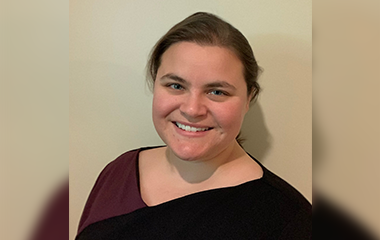 Margaret Blattner, MD, PhD
Margaret Blattner, MD, PhD
Beth Israel Deaconess Medical Center
A Novel Protocol for Diagnosing Idiopathic Hypersomnia
About the project
Blattner’s research recognizes that the current and most common methodology of diagnosing IH, a polysomnogram (PSG) and multiple sleep latency test , may have poor sensitivity, specificity, and reliability. Better diagnostic tools and more focused biomarkers are needed to improve the accuracy and utility of IH diagnoses. To address this, Blattner will test the sensitivity and specificity of using ambulatory sleep EEG technology as a novel protocol for diagnosing IH.
Impacts
This research may provide an alternative diagnostic pathway and/or a means for monitoring wake-promoting treatment efficacy in patients.
This grant is co-funded in collaboration with the Hypersomnia Foundation.
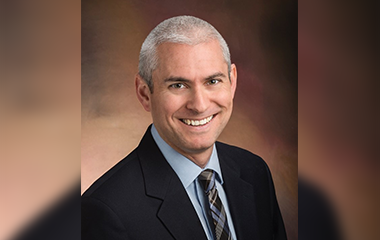 Christopher Cielo, DO
Christopher Cielo, DO
Children’s Hospital of Philadelphia
Home Sleep Apnea Testing for the Evaluation of Obstructive Sleep Apnea in Children Following Treatment with Adenotonsillectomy
About the project
Each year, approximately 300,000 American children undergo adenotonsillectomy to treat obstructive sleep apnea (OSA), and many children have residual OSA requiring treatment. While in-lab PSG is the only test supported for the evaluation of OSA for children, preliminary data shows that type II HSAT including EEG may be an alternative to in-lab pediatric PSG. Cielo’s research will compare the diagnostic accuracy of type II HSAT with PSG for evaluating OSA.
Impacts
There is an urgent unmet need for expanded capacity of sleep apnea testing in children, particularly in resource-limited areas where pediatric sleep laboratories are not readily available. This project works towards increasing the availability of sleep apnea testing for children.
 Emily Ricketts, PhD
Emily Ricketts, PhD
The Regents of the University of California, Los Angeles
Melatonin Use in United States Children: National Parent and Primary Care Physician Surveillance
About the project
Melatonin is frequently used by families and recommended by U.S. primary care physicians for pediatric sleep problems. However, melatonin safety information is limited, and formal clinical guidelines are lacking. Ricketts’ project will examine pediatric melatonin use, perceived effects and safety, behavioral and clinical patterns of use, and provider practices.
Impacts
This research will inform advocacy and policy-making organizations of trends in pediatric melatonin use and recommendation practices, helping to keep children safer and healthier.
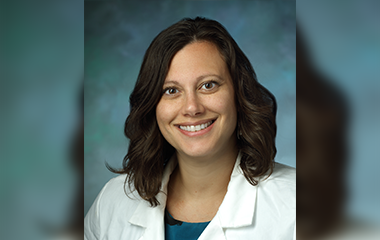 Traci Speed, MD, PhD
Traci Speed, MD, PhD
Johns Hopkins Medicine
Using Implementation Science to Examine the Feasibility and Efficacy of Brief Behavioral Therapy for Insomnia Implementation in Substance Use Disorder Recovery Programs
About the project
Chronic insomnia is a health concern, especially among a special population of vulnerable people with homelessness and substance use disorders (SUDs). Insomnia, which is nearly ubiquitous SUDs, undermines recovery efforts regardless of the type of substance used. This project focuses on behavioral intervention targeting insomnia which may potentially improve SUD treatments and outcomes.
Impacts
Speed’s research aims to positively influence clinical care for vulnerable patients, increase recognition of the value of sleep services in SUD treatment, and provide evidence-based support of insomnia interventions that can be shared with clinicians, administrators, payers, and government decision-makers.
Strategic Research Grant: Continuous Positive Airway Pressure Treatment for Obstructive Sleep Apnea
 Ulysses Magalang, MD
Ulysses Magalang, MD
The Ohio State University
Effect of CPAP on 24-Hour Blood Pressure in the Excessively Sleepy Obstructive Sleep Apnea Subtype
About the project
Magalang’s project identifies three reproducible obstructive sleep apnea (OSA) symptom subtypes: excessively sleepy, disturbed sleep, and minimally symptomatic. While many previous studies have focused on non-sleepy subjects, this research aims to determine the longer-term (6 months) effect of s continuous positive airway pressure (CPAP) therapy outcomes in OSA subjects with the excessively sleepy symptom subtype.
Impacts
This project will provide real-world evidence about the longer-term effects of CPAP on OSA subjects with the excessively sleepy subtype, an important step towards more personalized treatment of OSA.
 Megan Petrov, PhD
Megan Petrov, PhD
Arizona State University
An App-Based, Precision Medicine Approach to Optimize Long-Term CPAP Adherence and Quality of Life
About the project
The most common treatment for OSA is continuous positive airway pressure therapy CPAP, but patient adherence remains challenging. Scientists have recently developed and tested the feasibility of a clinically focused mobile health application called SleepWell24 to support CPAP adoption and adherence. This project addresses this adherence issue by enhancing SleepWell24 into a precision medicine, adaptive, lifestyle-based intervention that optimizes long-term CPAP adherence and health-related quality of life in patients newly prescribed with CPAP.
Impacts
Petrov’s research will optimize CPAP adoption, improve quality of live, and promote long-term CPAP adherence in a large confirmatory efficacy trial, which will establish a new paradigm of precision sleep medicine.
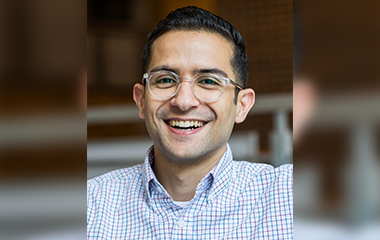 Bruno Saconi, PhD, RN
Bruno Saconi, PhD, RN
Geisinger
Enhancing Positive Airway Pressure Adherence Among Spanish-speaking Hispanic Adults with Obstructive Sleep Apnea
About the project
Dr. Saconi’s research aims to enhance long-term positive airway pressure (PAP) adherence among Spanish-speaking Hispanics, a group with known PAP outcomes disparities. This study will linguistically and culturally adapt an efficacious tele-management intervention for Spanish-speaking Hispanic adults with OSA through stakeholder engagement working groups. The automated two-way, interactive communication is algorithmic based on PAP use and behavioral profiles defined at baseline.
Impacts
This project will result in a linguistically and culturally congruent PAP adherence intervention for U.S. Hispanic adults and critical preliminary data to support a future larger study.
Strategic Research Grant: Hypopnea Scoring Criteria
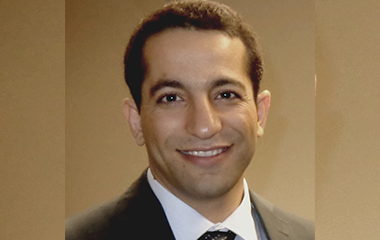 Ali Azabarzin, PhD
Ali Azabarzin, PhD
Harvard Medical School
Characterizing the Respiratory Events Responsible for the Adverse Outcomes of Sleep Apnea: Optimization of the Apnea-Hypopnea Index
About the project
The apnea-hypopnea index (AHI) is the most commonly used system to measure the severity of OSA. However, hypopnea scoring methodology leads to variations in AHI definition across studies, which causes variations in the estimated associations with outcomes. Azabarzin hopes to reduce this phenomenon by analyzing OSA observational cohorts and randomized controlled trials of CPAP to characterize the respiratory events that are most responsible for adverse outcomes in OSA.
Impacts
OSA affects up to one billion adults worldwide and is largely associated with cardiovascular disease (CVD). In efforts to reduce CVD-related mortality rates, this project will attempt to discover disease severity thresholds that indicate a need for therapy.



